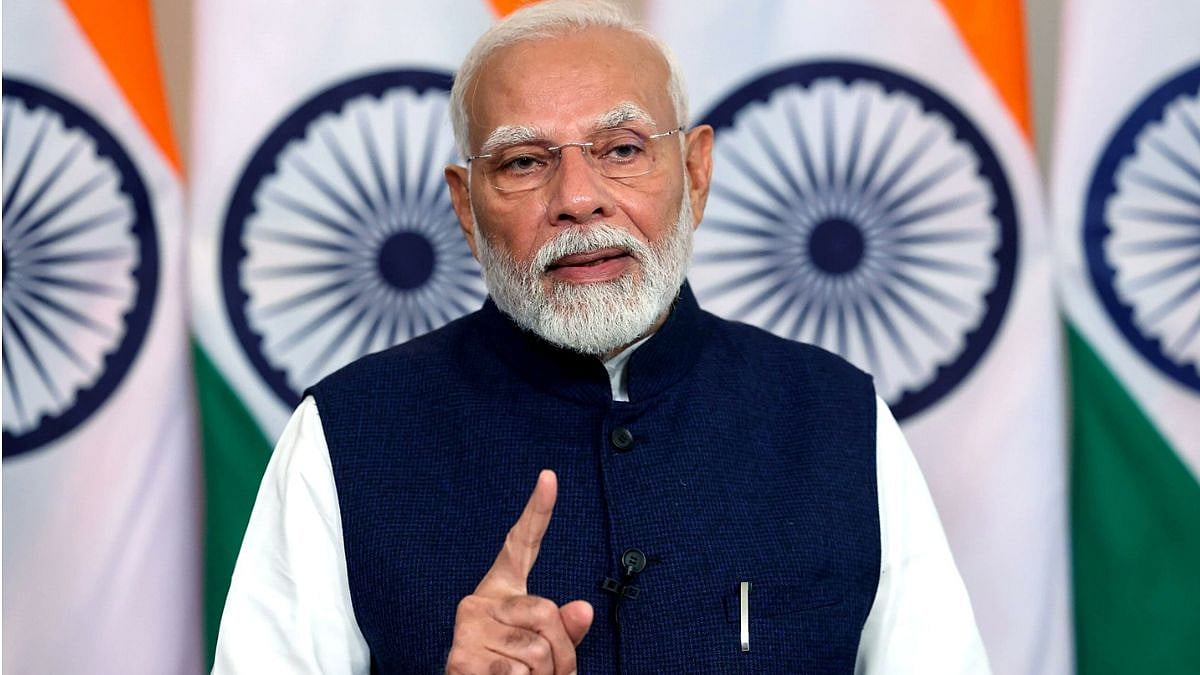Even a schoolchild knows that prevention is better than cure, though many of our politicians and those in power are either not aware of this or deliberately ignore the maxim for their political gains, irrespective of whether it is against the interest of the public at large or the society.
A classic case is that of Maharashtra Chief Minister Eknath Shinde, who joined a team of volunteers and solid waste management staff of Brihnamumbai Municipal Corporation (BMC) in cleaning up the beach at Chowpatty, a day after the end of the 20-day Ganesh festival and the immersion of the idols.
It would be erroneous to believe that Shinde cleaned up all of Chowpatty, which was littered with garbage after the Ganesh immersion. For the likes of Shinde, such occasions are a photo opportunity to get wide publicity through favourable media houses, which do not wait to see his contribution to the clean-up drive.
On coming to power in 2014, Prime Minister Narendra Modi also took up a cleanliness drive under the Swachh Bharat Abhiyan. That campaign did not last long, having died a natural death the way such publicity-oriented campaigns end up. Modi had directed that once a month all government employees shall give an hour for the cleanliness drive in their respective organisations. One can recall such acts being carried out by government employees for a couple of months, after which all the stakeholders — the prime minister, the government employees and the media — forgot about it. Not used to questioning the PM or those in power through a Bharatiya Janata Party government, the media preferred to remain silent on the issue.
The task of maintaining a clean environment continued with the civic employees in various cities and downs. They have since been carrying out their tasks regularly and are probably happy to have been freed from the special task given occasionally to deposit garbage at a certain place to give the prime minister a photo opportunity.
No task is lowly and that is what Mahatma Gandhi also believed in, hence he would regularly do cleaning work, including cleaning of toilets in the ashram; and he did not carry out these tasks to impress others or to give an opportunity to photographers to take his photos carrying out such tasks.
Modi had launched the Swachh Bharat Abhiyan on October 2, 2014 as a tribute to the Mahatma. Primarily, there was no need to launch the Swachh Bharat Abiyan, since there was already a similar programme started by the Dr Manmohan Singh government. The scheme, which was named Nirmal Gram Puraskar, concentrated primarily on keeping rural areas clean and hygienic. The scheme is extremely successful with thousands of villages sending in their applications for the award under the scheme, but the scheme is not advertised, the way other schemes and programmes introduced by Modi are advertised.
The Maharashtra government too had a similar scheme called the Sant Gadge Maharaj Gram Swachhta Abhiyan Puraskar, but that has now been suspended. It is not surprising, since political parties in power anywhere in the country, work towards the betterment of their party, rather than the society or the nation.
At the outset it must be remembered that it is not the job of the prime minister or the chief minister to clean up public places. They have to ensure that people do not dirty public places or make them unhygienic. The little hygiene habits that were followed by a section of the population during the Covid-19 pandemic have been given up by them. Spitting on the road is common practice and that is not restricted to auto-riders alone; people in expensive cars are also seen opening the doors of their moving vehicles to spit.
Celebration of festivals is fine as long as they do not cause harm to the ecology and the members of the public. The Ganesh Chaturthi festival generated a 363 tonnes of solid waste and 550 tonnes of nirmalya (floral offerings) in a span of two days, in Mumbai alone. This burden on the civic body can be reduced by making people liable to reduce solid waste and to convert the biodegradable floral offerings into compost.
Most organisations holding public celebrations of the Ganapati festival end up making huge amount of assets from cash donations and donations in the form of gold and silver. Such organisations should be asked to dispose of their biodegradable waste on their own or to pay for the cost of such disposal by the civic body.
An environment tax needs to be introduced and at least such organisations should be taxed given the magnitude of their financial status.
Relying on the Hindu vote bank, Shinde is not in a position to implement the court orders banning idols of plaster of Paris. Traditionally the idols are made of clay taken from the banks of rivers and streams soon after the rainy season. Such idols, on immersion in the same water, easily dissolve in it.
It is not that devout Hindus would oppose such a move. A large number of them are either going back to the making of traditional idols or have been worshipping reusable idols. They have also agreed to the immersion of the idols in artificial ponds, created by civic bodies for the purpose.
It is time for politicians to see beyond minor political gains and to think about the general good of society, though this is an idealistic thought in the current political scenario.
Instead of pretending to merely clean up the beaches, politicians should free society of the pollution of moral values, including in the political arena. The chief minister would do well to follow what Mahatma Gandhi said: Practice before you preach. He should start being a constructive politician, instead of spitting venom at the Opposition and waiting for them to follow. But he is bound to fail miserably on that count.
The author is a senior journalist and media trainer. He tweets at @a_mokashi










